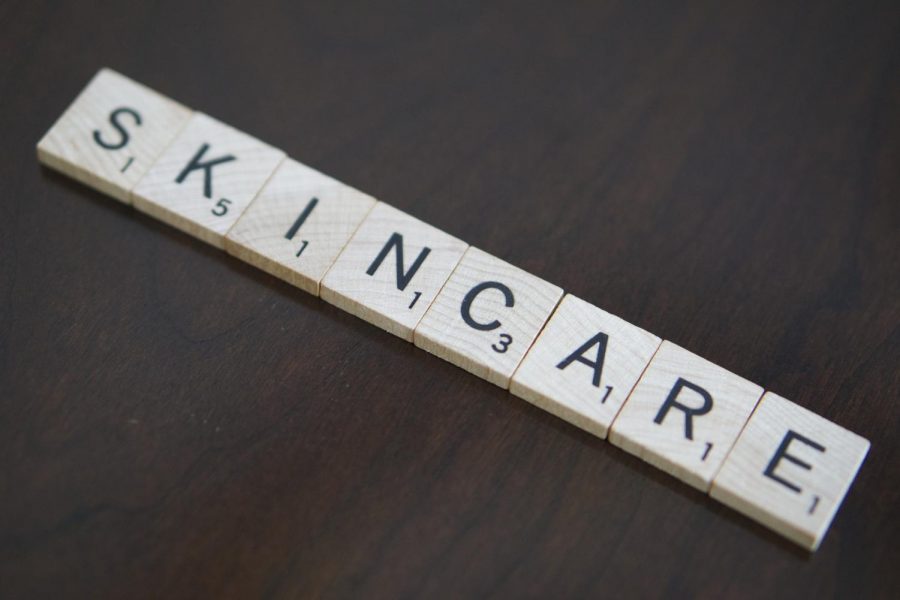
Winter here at the University of Massachusetts Amherst can be an extremely daunting time, especially for those of us who may not be used to the harsh cold. From bracing against an arctic wind tunnel next to DuBois Library, to huffing and puffing cold breaths of air on the trek up Central’s hill, then to bracing a second bout of freezing wind walking through the Southwest towers, it’s no easy feat to maintain moisturized and glowing skin. It seems like the odds are stacked up against the students here. While mother nature cannot be tamed and students must continue to face the elements head on, there are accessible cheap tips and tricks that can mitigate damage done on our skin during these cold winter months.
1. First and foremost, always wear sunscreen. Any beauty blog will have this as their first rule of thumb because it’s just that important. The sun doesn’t stop shining simply because it’s winter, and this consequently means that UV rays don’t stop causing damage to the skin. Over time, UV rays are not only carcinogens, but also act as enemies against the skin barrier. If you allow the sun to continually shine on your unprotected face, then your skin barrier will be weaker, prone to greater water loss, less elasticity, more wrinkles, dark spots, acne, and dryness. Even if the results aren’t immediately visible, wearing sunscreen will save your skin in the long haul and prevent premature aging, especially from the tumultuous winter months.
2. Don’t take hot showers. I unfortunately mean those steamy, feels so good you never want to get out showers. It seems counterintuitive, but just as extreme coldness dries out the skin, extreme heat also dries out the skin. Intense heat gets rid of the natural oils in the body that keep it moisturized. Even if you moisturize afterwards, your skin will be too dry for the moisturizer to sink in, only allowing it to work on the surface rather than penetrating deep within. The best way to avoid damaging the skin from showering is to use lukewarm water and only staying in around 5-10 minutes. Your skin will thank you later.
3. Food matters. You are what you eat to a certain extent. In the winter, it’s more acceptable to eat richer and heartier meals because your skin dries out quicker. Foods like avocados, eggs, salmon, and leafy greens are great ways to get good fats and vitamin C in your diet, both good for skin health and promoting a moisturized barrier.
4. Lastly, here are some key skincare ingredients you should look out for to combat winter woes. Good websites to learn more about skin health are Beauty Within, Harvard Health, Soko Glam, Birdie and Vogue.
- Ceramides, according to Allure, are a “component of the skin barrier” and are “lipids (aka fat molecules)” that also “help the skin retain moisture and allow [for] proper function,” says dermatologist Sejal Shah at an interview with Allure. Ceramides are so good for the skin because they keep it moist and are vital to the health of skin. They are at their highest concentration when we’re babies, so adding them to a skincare regime as we age is necessary to get that healthful glow. “Cerave” and “Cetaphil” brands both are abundant in ceramides and fragrance free so they won’t cause irritation. However, be wary of which products of these companies you buy. Not all, but some, contain an ingredient called a paraben, which is a form of preservative that has been linked as a known carcinogen.
- Niacinamide: (aka vitamin B-3) “can help build proteins in the skin and lock in moisture to prevent environmental damage” according to Kristeen Cherney of Healthline. It is an essential ingredient because it is what builds ceramides in the lipid bilayer, retaining moisture better, reducing redness, and decreasing damage on mature skin. “The Ordinary” has a niacinamide product that’s received good reviews.
- Vitamin C: According to the Linus Pauling Institute at Oregon State University, “The antioxidant properties of vitamin C (ascorbic acid) and its role in collagen synthesis make vitamin C a vital molecule for skin health.” Collagen synthesis is vital as part of the skin since it works beside ceramides and niacinamide to maintain a strong, elastic, and youthful skin. There are multiple forms of vitamin C, and it’s important to note that persons with sensitive skin might be more reactive to the ingredient. Vogue had a great article about different types of vitamin C for different skin types, and an important factor is pH. According to Vogue, “absorption of a vitamin C is largely contingent on its pH level. If you have normal skin, look for one with a low pH of approximately 3.5 for optimal absorption. If you have sensitive skin, you should use a formula with a pH of 5 to 6.” It’s important to start slow with its use, but is a key step for keeping healthy skin.
Implementing these tips and tricks will hopefully make winter skin less of a burden and decrease your risk of blemishes or premature aging. For more information, I recommend going online to search specific skin needs, because ultimately all our skin is different and reacts differently to products.
Email Erin Hunter at [email protected]
[“source=amherstwire”]



















